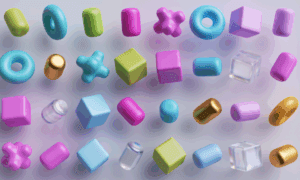Building a career as a medical assistant can be both rewarding and challenging. This field offers a mix of clinical and administrative duties, providing a unique opportunity to work closely with patients and healthcare professionals. A medical assistant’s role is crucial in ensuring the smooth operation of healthcare facilities, from clinics to hospitals. Whether you’re just starting or looking to advance, understanding the steps to build a successful and fulfilling career in this field is essential. This guide will cover key areas to help you navigate your path to success as a medical assistant.
Gain the Necessary Education and Certifications
The foundation of any successful medical assistant career begins with the proper education. While some individuals enter the field with only a high school diploma and on-the-job training, most employers prefer candidates who have completed an accredited medical assistant program. These programs typically offer a well-rounded curriculum that covers both clinical and administrative skills, preparing you for a variety of tasks in a healthcare setting.
Once you’ve completed your education, obtaining certification is the next logical step. Certification not only boosts your resume but also shows your commitment to the profession. The Certified Medical Assistant (CMA) credential, offered by the American Association of Medical Assistants (AAMA), is highly recognized and can set you apart in a competitive job market. Some states even require certification to practice. Continuing education and recertification every five years are essential to maintaining your credentials and staying up-to-date with medical advancements.
Develop Strong Communication and Interpersonal Skills
As a medical assistant, effective communication is a cornerstone of your job. You will be interacting with patients, doctors, nurses, and administrative staff daily. Being able to explain medical procedures to patients in simple terms, listening attentively to their concerns, and relaying important information to healthcare providers are all vital skills that ensure a smooth workflow.
Additionally, emotional intelligence is key to building rapport with patients, especially when they are dealing with illness or stress. Patients often feel vulnerable, and your ability to provide them with reassurance and support can significantly impact their experience. Strong interpersonal skills also foster a positive working environment with your colleagues, helping to create a more cohesive and productive team.
Learn Important Terminology and Procedures
One of the most important aspects of excelling in this field is mastering the specific terminology and procedures you’ll encounter daily. For instance, medical assistant terminology covers a wide range of terms and phrases used in both administrative and clinical contexts. Understanding these terms is critical for accurately completing patient records, assisting physicians during exams, and conveying information between healthcare professionals.
For example, knowing the difference between medical abbreviations, diagnostic codes, and procedure terms ensures that you’re delivering the right care and information to patients. Learning medical assistant terminology through a specialized resource can give you the confidence to handle these tasks with greater precision. As you advance in your career, continually updating your knowledge in this area will prove invaluable.
Build Technical Skills in Both Clinical and Administrative Functions
To be an effective medical assistant, you must be well-versed in both clinical and administrative tasks. Clinical skills can include taking patient histories, measuring vital signs, preparing lab specimens, and assisting with minor surgical procedures. On the administrative side, duties may involve managing patient records, scheduling appointments, handling billing, and coding insurance claims.
Being proficient in these technical areas ensures that you are a valuable asset to the healthcare team. Familiarity with electronic health record (EHR) systems, for instance, is increasingly important as the healthcare industry moves towards more digitalized operations.
Stay Organized and Manage Time Effectively
Medical assistants often juggle a wide variety of tasks, from checking in patients to preparing exam rooms and handling paperwork. Strong organizational skills and time management are crucial to ensuring that your workday runs smoothly and that you don’t miss any important details.
Creating systems to prioritize tasks can be incredibly helpful in managing your workload. For instance, organizing patient charts, ensuring all exam rooms are prepped, and keeping track of appointments can streamline your day and minimize stress. Staying organized also enhances patient care, as you’re more likely to spot any missing information or potential issues before they become bigger problems.
Continue Professional Development and Career Advancement
Once you’ve established a foundation in your career as a medical assistant, it’s important to continue growing and learning. The healthcare field is always evolving, with new technologies, treatments, and regulations emerging regularly. Staying up-to-date with these changes through continuing education can make you a more adaptable and valuable employee.
Opportunities for career advancement also exist for medical assistants who wish to specialize or take on more responsibilities. Some medical assistants choose to focus on areas such as pediatrics, geriatrics, or cardiology, while others may pursue roles like office manager or lead medical assistant.
Building a fulfilling career as a medical assistant requires a balance of education, technical expertise, interpersonal skills, and professional growth. From mastering terminology to developing a broad skill set that includes both clinical and administrative tasks, the path to success involves continuous learning and adaptability. With dedication and the right strategies in place, you can thrive in this dynamic and rewarding profession, making a lasting impact on both patients and healthcare teams.
Read More From Techbullion




































